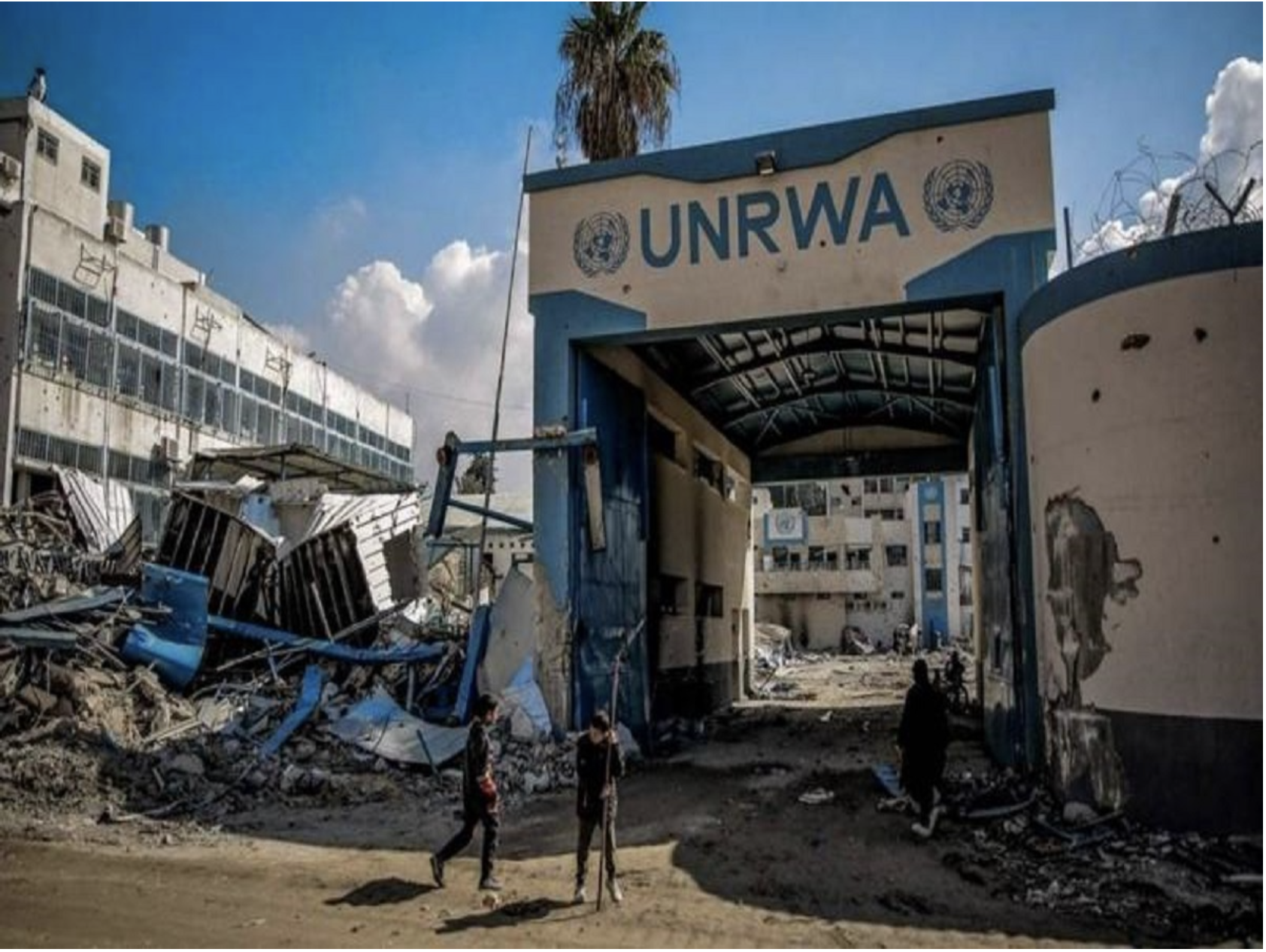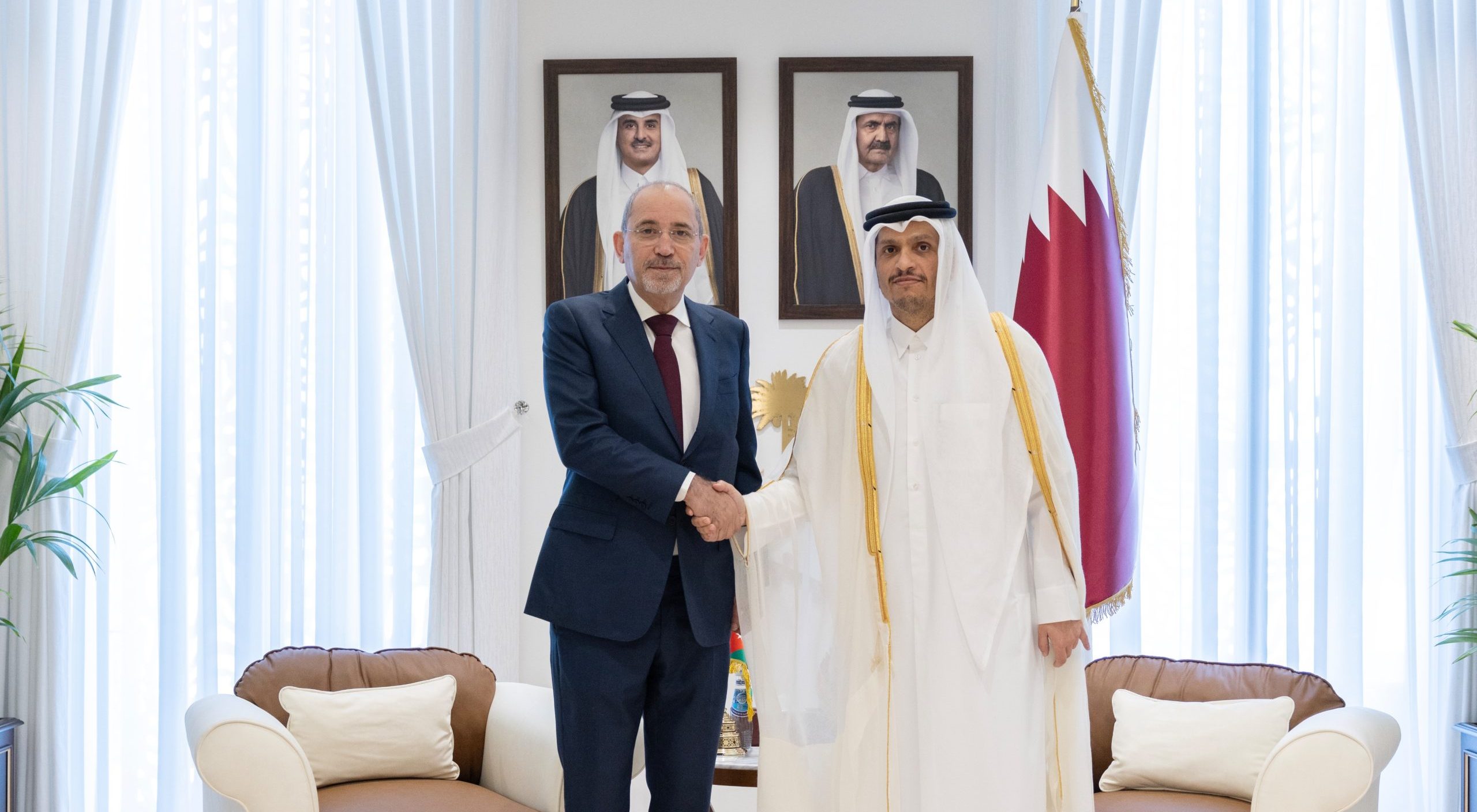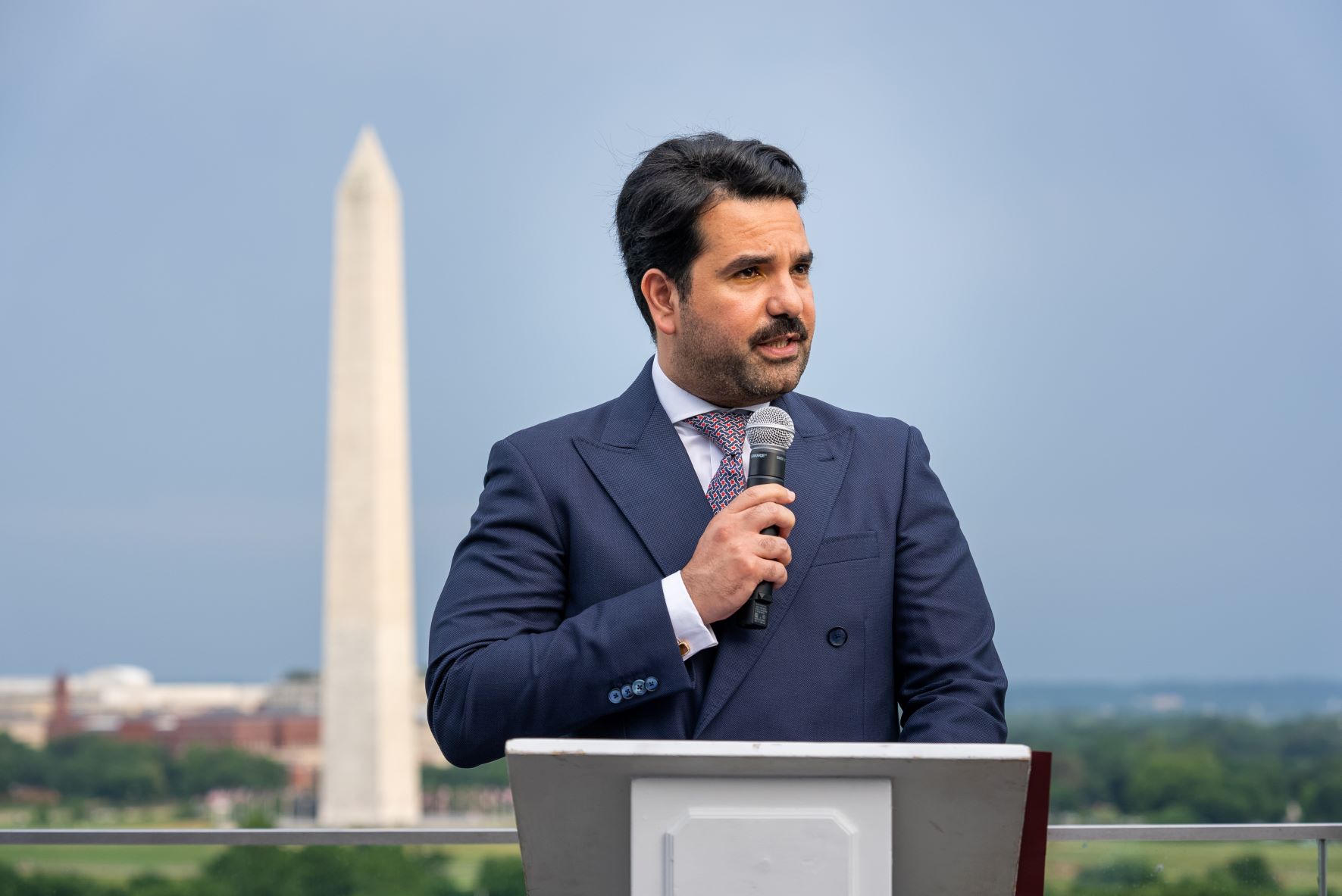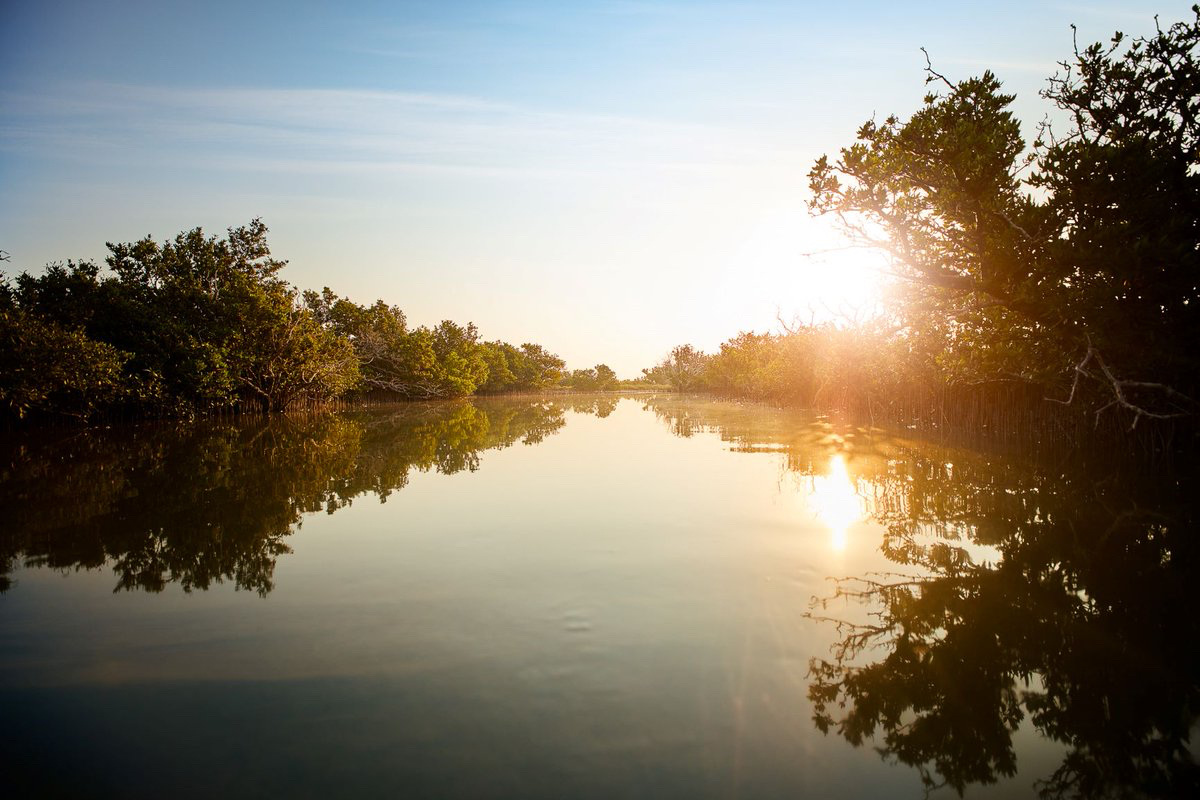A long-standing verbal agreement was replaced in 2013 by a written agreement between the Palestinian Authority and King Abdullah II that acknowledged Jordan’s role as custodian of the holy sites.
Jordan’s custodianship of holy sites in Jerusalem has served as a crucial safety valve and a main line of defence against Israeli aggression, a top Qatari official said, amid an alarming increase in attacks in the holy city.
The comments were made by Deputy Speaker of the Qatari Shura Council Hamda bint Hassan Al Sulaiti in a meeting with Jordan’s Lower House Speaker Ahmed Safadi on Saturday, in which the two discussed ways to improve parliamentary stance coordination to advance key issues, including the Palestinian cause.
Al Sulaiti highlighted both countries’ positions in support of the Palestinian cause and the right of Palestinians to exercise their legal entitlements on their own national territory, saying Qatar supports Jordan’s crucial support for the Palestinians.
Safadi also emphasised the significance of the Hashemite Custodianship over Jerusalem’s Islamic and Christian holy sites, which helps thwart attempts to Judaise the holy city.
The meeting was held on the sidelines of the Organization of Islamic Cooperation member states’ Parliamentary session in Algiers amid increasing escalations in Palestine.
Recent storming of Al-Aqsa by settlers
A recent increase in settler stormings of Al-Aqsa mosque has spiked concern across the world.
Israel’s far-right National Security Minister Itamar Ben-Gvir entered the Al-Aqsa Mosque compound in occupied East Jerusalem earlier this month, in a move that was widely described as a “deliberate provocation”.
The minister did this despite being alerted by Israeli politicians that doing so would exacerbate tensions.
The United States, Israel’s main ally, at the time said it was “deeply concerned” by the events while warning that changes to the status quo of Jerusalem’s holy sites is “unacceptable”.
The mosque’s existence is under constant threat posed by hardline groups who want the area to serve as the location of a rebuilt temple, adding even more to the Palestinians’ attachment to it.
Last week, Qatar’s Amir Sheikh Tamim bin Hamad Al Thani met with Jordan’s King Abdullah II in Doha in a meeting that saw both leaders discuss bilateral ties and developments in Palestine.
“They also discussed the most prominent regional and international developments of common concern, in addition to aspects of achieving stability, security and development in the region,” the Amiri Diwan added.
Jordan’s Royal Hashemite Court said Sheikh Tamim and King Abdullah discussed the Palestinian cause while “stressing the importance of stopping all illegal Israeli measures that undermine this solution.”
With the United States and Canada also on his itinerary, analysts said talks on ongoing Israeli aggression were likely to be on the agenda.
His trip to Doha comes just a day after the Jordanian leader met with Israeli Prime Minister Benjamin Netanyahu in Amman amid rising escalations in Jerusalem.
Speaking to Doha News, regional analysts believe the timing of the meeting with Netanyahu and the Doha visit suggest a possible discussion with the Qatari leader over the Hashemite custodianship of holy sites in Jerusalem.
“Jordan is very worried about what Israel is doing when it comes to the situation in Jerusalem and the impact of changing the status of the holy lands, especially that status which lasted since 1948 onwards,” the analyst said.
According to the Jordanian Royal Court, the Hashemite kingdom’s leader “stressed the importance of respecting the historical and legal status quo in Al Aqsa Mosque/Al Haram Al Sharif.”
King Abdullah called for an end to escalatory measures in Jerusalem while reiterating Amman’s “steadfast position in support of the two-state solution”.
The analyst said “Qatar has the capabilities to help politically, talk to the Americans, the Europeans to convince the Israelis that the more the situation deteriorates in Jerusalem, it will not serve anyone, it will cause more instability in the region”.
Speaking to CNN last year, King Abdullah said the custodianship of the holy sites is a “red line”.
“We have certain red lines. And if people want to push those red lines then we will deal with that. But I have to believe that there is a lot of people in Israel that are concerned as much as we are,” King Abdullah told CNN.
Hashemite custodianship of Jerusalem’s holy sites
The Jordanian royal family’s role in maintaining the Muslim and Christian holy sites in Jerusalem is known as “Hashmite Custodianship.”
The Hashemites, who presided over the holy city of Mecca for 700 years before being driven out by the House of Saud in 1924, are said to have descended from Prophet Muhammad.
The tradition dates back to 1924, when Hussein bin Ali (Sharif of Mecca), the highest Muslim body in charge of Muslim community affairs in Mandatory Palestine, was appointed as the site’s custodian.
The custody evolved into a Hashemite legacy that was managed by successive Jordanian kings.
East Jerusalem and the West Bank were under Jordanian control in 1948, and the country annexed the areas in 1951. Israel eventually gained control of the areas during the 1967 Six-Day War. Jordan gave up its claim to the area in 1988, and the two countries signed a peace treaty in 1994.
According to article 9 of the treaty, Israel pledges to “respect the present special role of the Hashemite Kingdom of Jordan in Muslim Holy shrines in Jerusalem” and to “give high priority to the Jordanian historic role in these shrines” when negotiations on the final status are conducted.
Jordan’s participation in the Muslim and Christian holy sites in Jerusalem was acknowledged in a 2013 agreement between Jordan and the Palestinian Authority, replacing the long-standing verbal agreement.
The Hashemite monarchy made four renovations to Al-Aqsa and the Dome of the Rock in the 20th century.
King Abdullah II contributed to the funding for the restoration of Christ’s tomb in the Church of the Holy Sepulchre in 2016 and gave $1.4 million to the Jerusalem Islamic Waqf, the Jordanian organisation in charge of running Al-Aqsa, in 2017.







